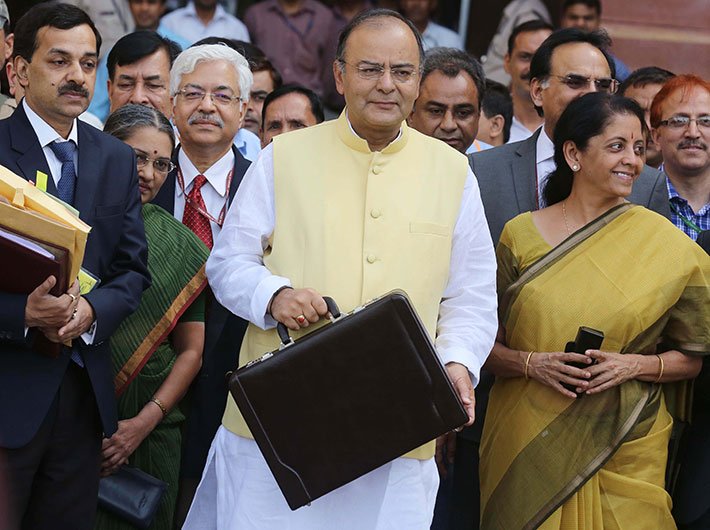Economy grew at 7.5% during December 2014 quarter. The economy will grow 7.4% in the year through March 31, aided by a 7.5% increase in October-December, the ministry of statistics and programme implementation said in New Delhi on Monday. Last month it revised the previous year’s expansion to 6.9% from 4.7%,
Secretary and Chief Statistician of India T C A Anant announced that India’s economic growth was estimated as 7.4% (2014-2015) compared to growth rate of 6.6% (2013-14).
The economy grew 5.7 per cent in the first quarter and 5.3 per cent in the second quarter of 2014-15, aggregating 5.5 per cent in the first six months. These numbers are based on GDP exclusive of indirect taxes (net of subsidies), which in technical jargon is termed GDP at factor cost. Besides, the base year is 2004-05.
These would be revised on the basis of GDP inclusive of indirect taxes (net of subsidies) and on the new base year of 2011-12. Economic growth has already been revised to 5.1 per cent from the earlier 4.5 per cent for 2012-13 and 6.9 per cent from the earlier 4.7 per cent for 2013-14.
Meanwhile, finance minister Arun Jaitley has said that overall economic situation in the country is looking better and basic parameters of Indian economy are moving in the right direction. The finance minster was making the opening remarks at the first meeting of the Parliamentary Consultative Committee attached to his ministry held on Monday to discuss ‘Suggestions for the Budget’.
Jaitley said that current account deficit will be under control and will try to keep fiscal deficit also within the prescribed limit. The finance minister said that the growth rate would be better than the last year as per the old system.
Various suggestions were given with regard to the forthcoming budget by the participating members which include significant increase in allocation for judicial sector for setting- up fast track courts in order to clear the heavy back log of pending court cases in various courts; abolition of differential import tax levied on end use basis as this leads to misuse and corruption, steps be taken to broaden the tax base and impose small tax at flat rate on everyone including small businessmen so that everyone is a stakeholder in the country’s development.
Other suggestions included focus on inland waterways, rationalization of subsidies including in case of urea leading to its excessive use which in turn spoiled the quality of land and brought down the productivity, more concession for migrant workers and agricultural labourers, incentives for modernization of agriculture to make it viable, focus on creating strong rural infrastructure, incentives for agri-exports, more tax benefits to cooperative sector, incentivize use of ethanol in petrol, more allocation for animal husbandry and veterinary research, boost to micro-irrigation, 50% subsidy by the Central Government for drip irrigation be extended to all farmers in all areas and financing of remaining 50% liberally by banks through soft loans to farmers among others. Other suggestions include labour reforms, settlement of issue of wages etc of staff of public sector banks and insurance companies and focus on skill development programmes for workers and labourers among others.
Some other suggestions included structural reforms in manufacturing sector, incentives in income tax for exporters, incentivize import of cutting edge technology rather than finished products, and online scrutiny of tax returns to bring high level of transparency and probity.
Other suggestions included incentivizing tourism by creating tourism infrastructure as tourism has a great potential both for generating revenue as well as creating employment opportunities. More allocation to Archaeological Survey of India for preserving cultural heritage, incentives to local bodies and private sector for solid waste management, tax relief to women especially those working in informal sector and more allocation for education and health sectors among others. Suggestions were made to fill-up the vacant positions in CBDT and CBEC for better revenue collections and law be amended to ensure that registered offices of the companies/corporate houses are located where their substantial business take place to avoid tax evasion etc.
See full report here


